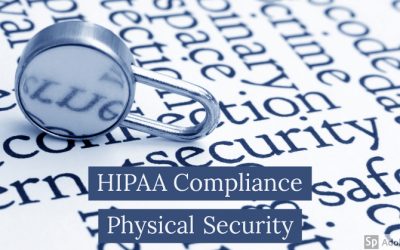The HHS office for civil rights (OCR) issued the last standard in 2013 to adjust the HIPAA privacy, Security, Breach notification, and Enforcement rules. Among different things, The last principle distinguishes arrangements of the HIPAA Rules that apply straight forwardly to business associates and for which business associates are legitimately liable.
As put forward in the HITECH act and OCR’s 2013 last rule, OCR has the authority to take enforcement action against business associates in case if:
- In the event that Business associates don’t cooperate with the secretary to provide complete access including protected health information (PHI) required to determine compliance.
- Failure to provide breach notification to a covered entity or another business associate.
- Unauthorized use & disclosure of PHI
- Failure to disclose a copy of electronic PHI (ePHI) to either the covered entity, the individual, or the individual’s designee (whichever is specified in the business associate agreement) to satisfy a covered entity’s HIPAA obligations
- Failure to make reasonable efforts to limit the use of PHI to the minimum necessary to accomplish the intended purpose of the use, disclosure or request.
- Failure to provide an accounting of certain disclosures.
- Failure to enter into business associate agreements with subcontractors that create or receive PHI on their behalf, and failure to comply with the implementation specifications for such agreements.
- Failure to take reasonable steps to address a material breach or violation of the subcontractor’s business associate agreement.
- Inability to give breach notification to a covered entity or another business associate.
- Inability to comply with the requirements of the Security Rule.
OCR also can take enforcement action if a BA objects against any individual for filing a HIPAA complaint, participating in an investigation or other enforcement process or opposing an act or practice that is unlawful under the HIPAA rules.
HIPAA compliance can be a long and complex process that is crucial to the successful operation of any successful business in the healthcare field. All of the security regulations must be known in great detail and the responsible entities must have the personnel to successfully institute the policies necessary under the HIPAA privacy laws. Telegenisys has instituted physical, technical and administrative safeguards to ensure that client data is safe from unauthorized access and complete compliance with HIPAA. Know more..
1 45 CFR §§ 160.310, 164.502(a)(4)(i). 2 45 CFR § 160.316. 3 45 CFR § 164.502(a)(3). 4 45 CFR § 164.502(a)(4)(ii). 5 45 CFR § 164.502(b). 6 HITECH Act § 13405(c)(3), 42 U.S.C. § 17935(c)(3) 7 45 CFR §§ 164.502(e)(1)(ii), 164.504(e)(5). 8 45 C.F.R. § 164.504(e)(1)(iii) 9 45 CFR §§ 164.410, 164.412. 10 HITECH Act § 13401, 42 USC § 17931














0 Comments